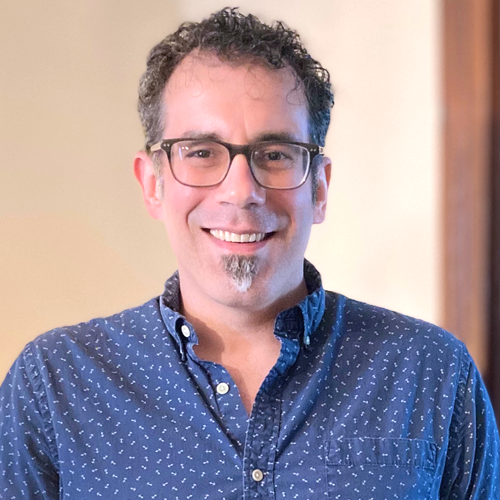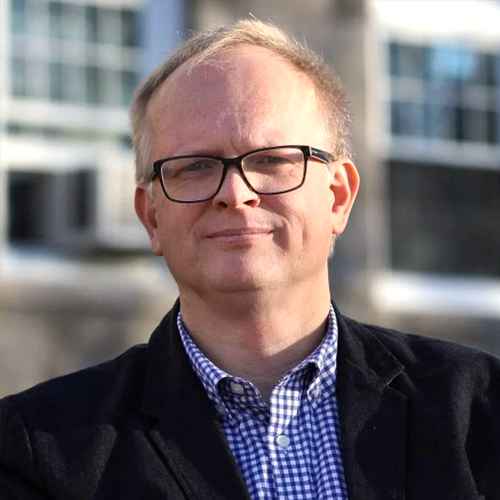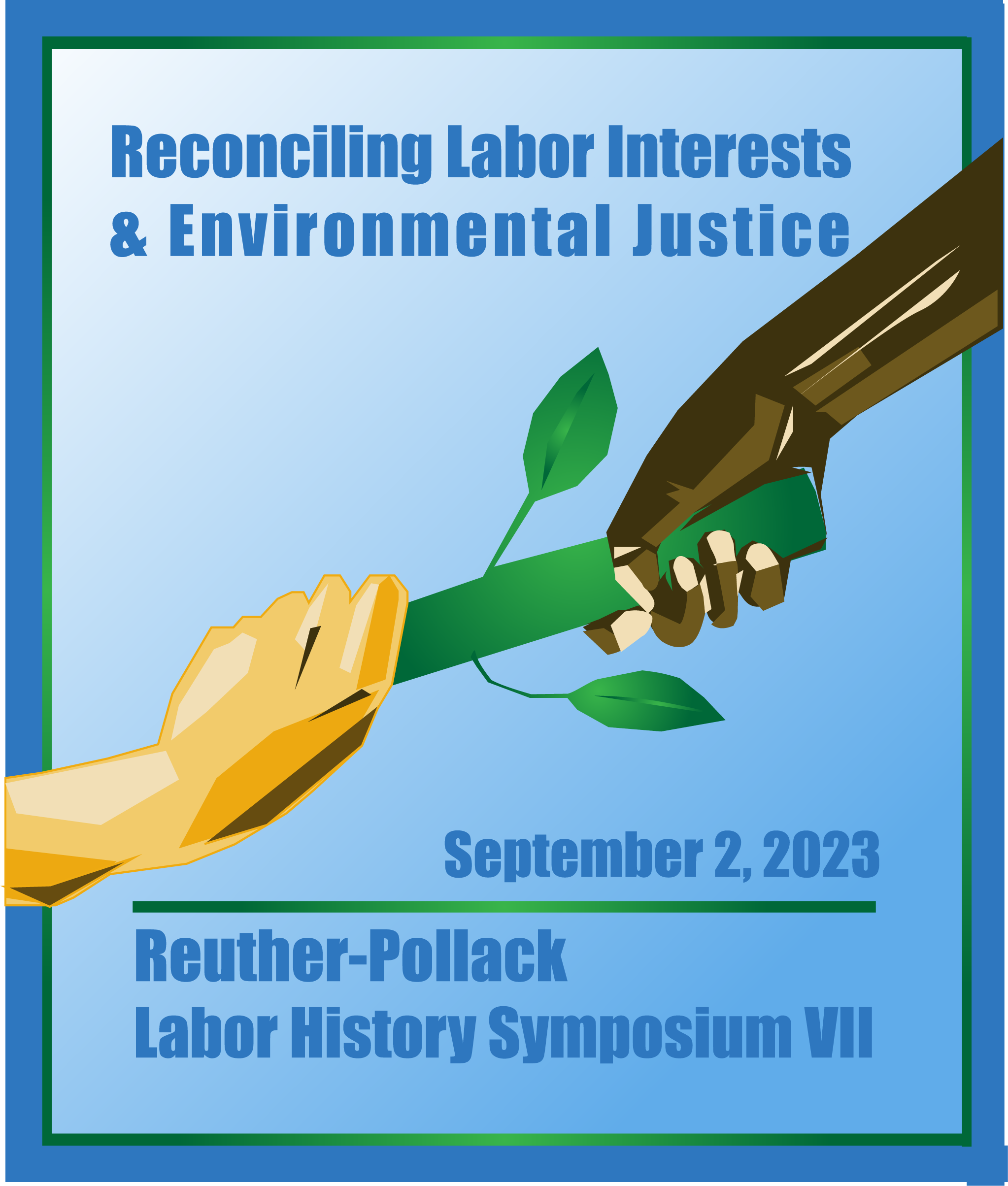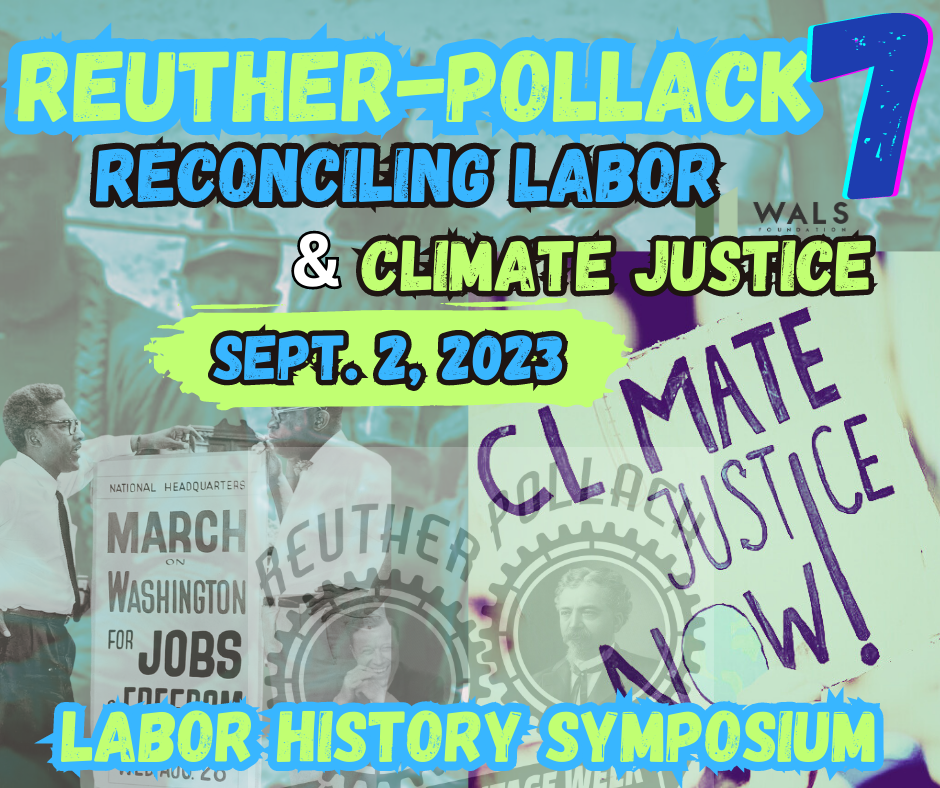THE 2023 REUTHER-POLLACK LABOR HISTORY SYMPOSIUM
The 2023 Reuther-Pollack Labor History Symposium VII
The 7th annual Reuther-Pollack Labor History Symposium will be held on Saturday, September 2, 2023. View schedule below, download a brochure, or click here to view the Facebook event page.
TICKETS:
Admission is $30. Tickets may be purchased in advance through Eventbrite or in person by contacting Sean Duffy at [email protected].
➤ Purchase your ticket today online!
VIEW PRIOR SYMPOSIUMS ONLINE:
➤ Click here to view the schedule from the Reuther-Pollack Labor History Symposium VI
➤ Click here to view videos from the 2021 Livestream Reuther-Pollack Labor History Symposium V, "Remember Blair Mountain."
➤ Click here to view videos from the 2020 Livestream Reuther-Pollack Labor History Symposium IV, "Solidarity Against Hate."
2023 SYMPOSIUM SCHEDULE
Doors Open: 9:30 am for Registration and *Continental Breakfast*
10:00 am: Dr. William Hal Gorby
"The Ohio Valley's Struggle to Balance Labor and Environmentalism"
 For generations, working people throughout the Upper Ohio Valley have fought for better wages, safer working conditions, and raised concerns about the wider environment. Pollution and diseases tied to industry were very pertinent issues for local labor unions. In the early 20th century, the Ohio Valley Trades and Labor Assembly improved working class life, as seen in their advocating for a filtrated water system. However, labors’ goals did not always align perfectly with the rising environmental movement. Many unions initially raised concerns about strip mining and other new technologies, but as the economy turned precarious in the 1970’s and 1980’s, many working people came to view environmental regulations as detrimental to their economic security. Striking a balance supporting economic and environmental justice has been a long feature of the region’s labor history.
For generations, working people throughout the Upper Ohio Valley have fought for better wages, safer working conditions, and raised concerns about the wider environment. Pollution and diseases tied to industry were very pertinent issues for local labor unions. In the early 20th century, the Ohio Valley Trades and Labor Assembly improved working class life, as seen in their advocating for a filtrated water system. However, labors’ goals did not always align perfectly with the rising environmental movement. Many unions initially raised concerns about strip mining and other new technologies, but as the economy turned precarious in the 1970’s and 1980’s, many working people came to view environmental regulations as detrimental to their economic security. Striking a balance supporting economic and environmental justice has been a long feature of the region’s labor history.
Dr. William Hal Gorby is a Teaching Associate Professor of History at West Virginia University, and his work focuses on the history of West Virginia and Appalachia. He is the 2020-21 recipient of the Eberly College’s Outstanding Teacher award and the University’s Nicholas Evans Excellence in Advising Award. His book, Wheeling’s Polonia: Reconstructing Polish Community in a West Virginia Steel Town was published by WVU Press in 2020, and won the Oskar Halecki Book Prize as the top book on the Polish American experience in 2022-23.
11:00 am: Dr. Josiah Rector
“The Black Lake Center, Deindustrialization, and the Social-Democratic Origins of the Environmental Justice Concept”
 This paper argues that UAW President Walter Reuther’s social democratic conception of economic justice shaped his approach to environmental issues. Reuther believed that environmental protection should be integrated with the economic agenda of the trade union movement, the civil rights movement, and the War on Poverty. The Walter and May Reuther Family Education Center in Black Lake, Michigan, inspired by the Swedish Confederation of Trade Unions’ worker education centers, expressed these values. The “Working for Environmental and Economic Justice and Jobs” conference, held at Black Lake in May 1976, promoted the concept of “environmental justice” over five years before the mass protests in Warren County, North Carolina, which scholars often cite as the “birthplace” of the environmental justice movement. Tragically, however, deindustrialization, automation, and union-busting inflamed tensions between environmental and economic justice. Revisiting Reuther’s social democratic politics can offer inspiration for us as we grapple with these challenges today.
This paper argues that UAW President Walter Reuther’s social democratic conception of economic justice shaped his approach to environmental issues. Reuther believed that environmental protection should be integrated with the economic agenda of the trade union movement, the civil rights movement, and the War on Poverty. The Walter and May Reuther Family Education Center in Black Lake, Michigan, inspired by the Swedish Confederation of Trade Unions’ worker education centers, expressed these values. The “Working for Environmental and Economic Justice and Jobs” conference, held at Black Lake in May 1976, promoted the concept of “environmental justice” over five years before the mass protests in Warren County, North Carolina, which scholars often cite as the “birthplace” of the environmental justice movement. Tragically, however, deindustrialization, automation, and union-busting inflamed tensions between environmental and economic justice. Revisiting Reuther’s social democratic politics can offer inspiration for us as we grapple with these challenges today.
Dr. Josiah Rector is an Assistant Professor of History at the University of Houston. He received his Ph.D. at Wayne State University in Detroit, where he spent many hours at the Walter Reuther Library of Labor and Urban Affairs. He is the author of Toxic Debt: An Environmental Justice History of Detroit (Univ. of N.C. Press, 2022), and two articles about the UAW and environmental politics (in the Journal of American History and Modern American History, respectively).
12 pm - Lunch Break
➤ Lunch provided
➤ Reuther Birthday Celebration
➤ Walking Tour to the Reuther & Pollack monuments led by Dr. David Javersak.
2:00 pm: Dr. Erik Loomis
“The Lost History of Labor-Environmental Alliances”
 The 1970s saw an enormous upswing in both the environmental and labor democracy movements. This talk explores the connections between those movements to demonstrate what could have been and what could be. Versions of a labor environmentalism extend back to the 1930s in the timber industry and these slowly grew, even before the popular environmental movement began rising after World War II. The expansion of chemical usage, toxicity, and the environmental crisis increasingly clear to Americans by the late 1960s helped to bring these movements together and created significant alliances between environmental groups and unions in timber, steel, oil, chemicals, auto, and other industries. The economic stagnation of the late 70s and the rise of capital mobility that closed factories strained and eventually destroyed these relationships. Today, some unions engage in overtly anti-environmental actions while many environmental groups struggle to speak to working Americans. This talk will explore this forgotten history, discuss current conflicts in historical context, and point the way forward to the rise of new and increasingly meaningful alliances.
The 1970s saw an enormous upswing in both the environmental and labor democracy movements. This talk explores the connections between those movements to demonstrate what could have been and what could be. Versions of a labor environmentalism extend back to the 1930s in the timber industry and these slowly grew, even before the popular environmental movement began rising after World War II. The expansion of chemical usage, toxicity, and the environmental crisis increasingly clear to Americans by the late 1960s helped to bring these movements together and created significant alliances between environmental groups and unions in timber, steel, oil, chemicals, auto, and other industries. The economic stagnation of the late 70s and the rise of capital mobility that closed factories strained and eventually destroyed these relationships. Today, some unions engage in overtly anti-environmental actions while many environmental groups struggle to speak to working Americans. This talk will explore this forgotten history, discuss current conflicts in historical context, and point the way forward to the rise of new and increasingly meaningful alliances.
Dr. Erik Loomis is Professor of History at the University of Rhode Island. He is the author of three books:Out of Sight: The Long and Disturbing Story of Corporations Outsourcing Catastrophe (2015); Empire of Timber: Labor Unions and the Pacific Northwest Forest (2016); and A History of America in Ten Strikes (2018). He has written about labor, environmental, and other issues for The NY Times, Washington Post, Dissent, The Nation, The New Republic, and other publications.
3:00 pm: Dr. J. Mijin Cha
“The Power of Environmental Justice-Labor Coalitions to Deliver a Just Energy Transition for All”
 Ending fossil fuel use is necessary for protecting the future of humanity. But, ending fossil fuel use will result in job loss and economic hardship for communities. This talk will discuss the challenges decarbonization raises and how environmental justice and labor interests can work together to build a more just future where all communities can thrive.
Ending fossil fuel use is necessary for protecting the future of humanity. But, ending fossil fuel use will result in job loss and economic hardship for communities. This talk will discuss the challenges decarbonization raises and how environmental justice and labor interests can work together to build a more just future where all communities can thrive.
Dr. J. Mijin Cha is an assistant professor of environmental studies at the University of California, Santa Cruz. She is also a fellow at Cornell University's newly launched Climate Jobs Institute, where she works on the Labor Leading on Climate initiative. Dr. Cha’s work looks at the intersection of climate, labor, and inequality. Her recent research is on “just transition,” how to transition workers and communities equitably into a low-carbon future. Dr. Cha is on the board of the Center on Race, Poverty, and the Environment, Greenpeace Fund, and a member of the California Bar.
 ➤ Download a brochure for the 7th annual Reuther-Pollack Labor History Symposium
➤ Download a brochure for the 7th annual Reuther-Pollack Labor History Symposium➤ Purchase a ticket through Eventbrite
➤ View the Facebook event page


